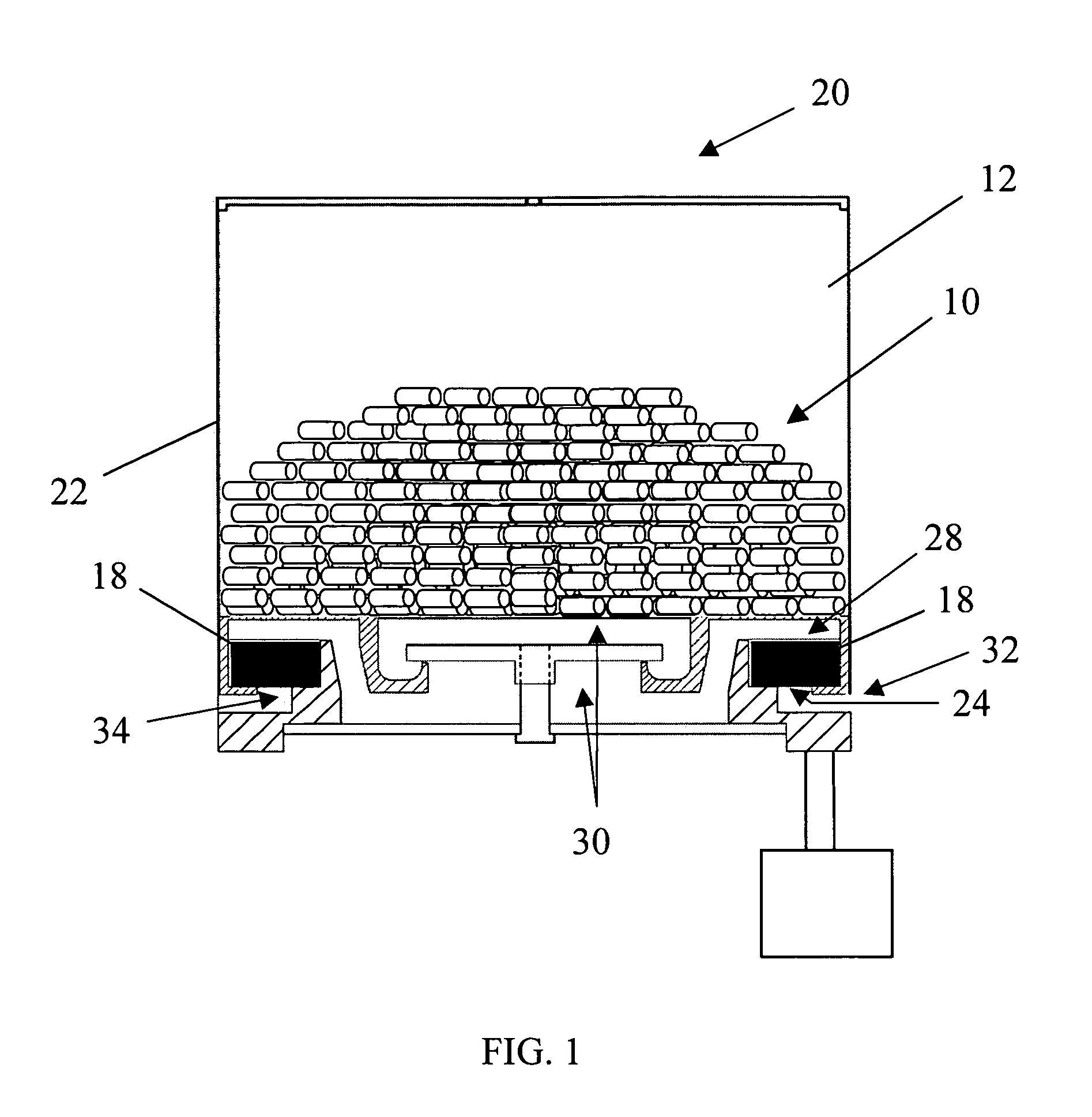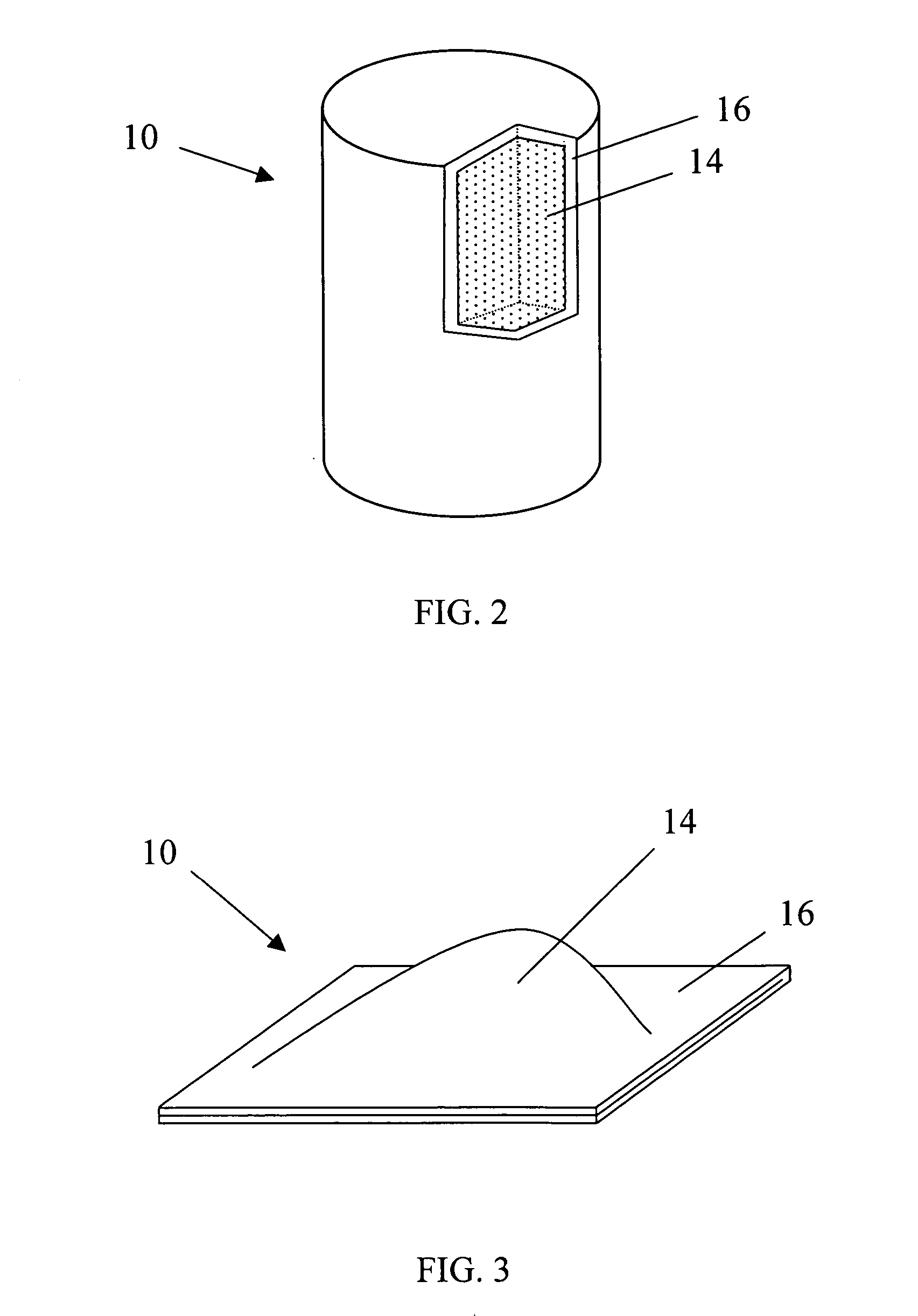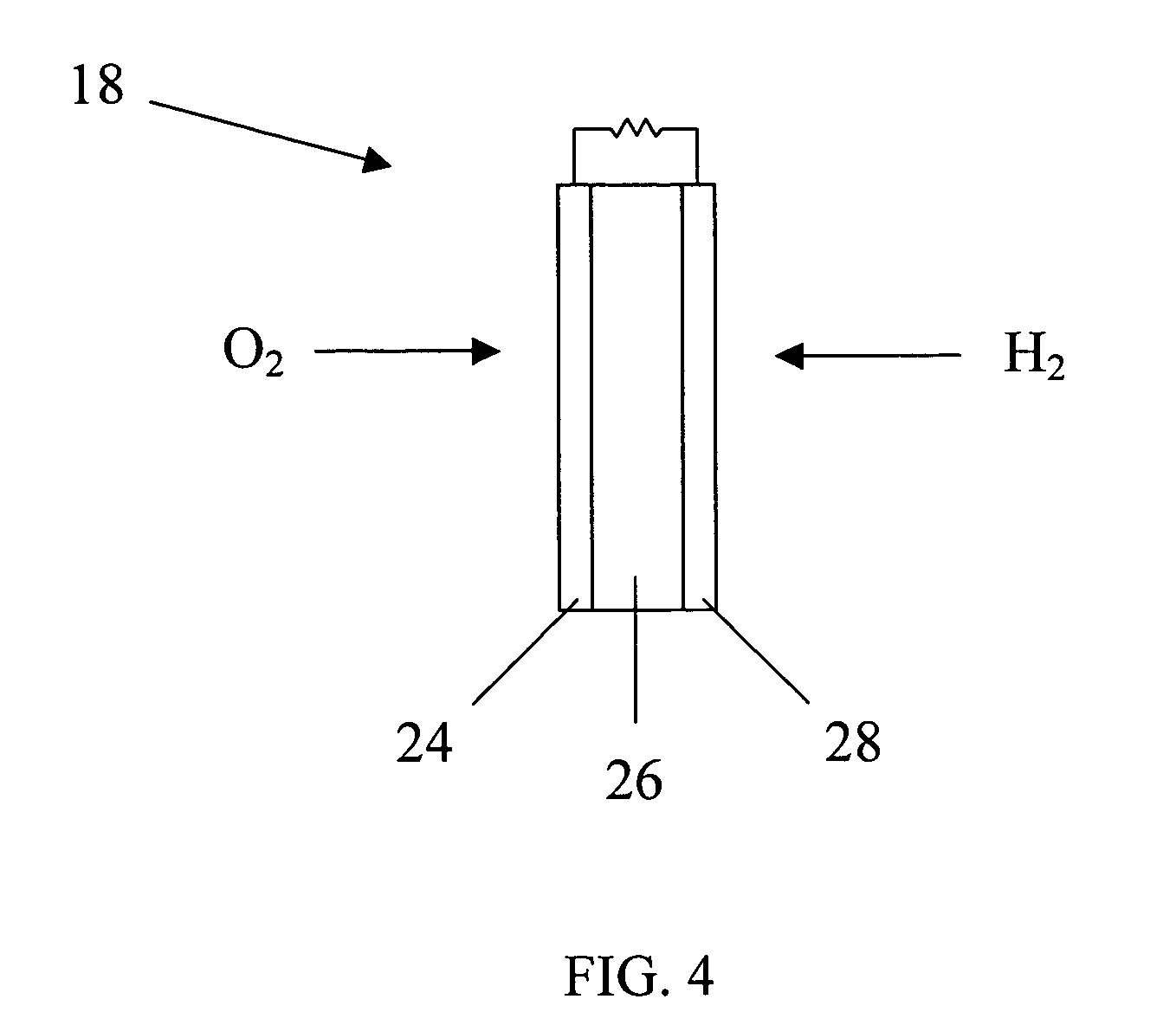Fuel encapsulation
a technology of encapsulation and fuel, which is applied in the direction of fuels, cell components, electrochemical generators, etc., can solve the problems of system undesirable, high cost, and high cost of metal hydrides
- Summary
- Abstract
- Description
- Claims
- Application Information
AI Technical Summary
Benefits of technology
Problems solved by technology
Method used
Image
Examples
example 1
[0033] Fifty grams of fine lithium aluminum hydride (LiAlH4) powder is mixed in 100 ml hexane and approximately 0.1 grams of a curable rubber solution. The curable rubber solution includes a curing agent. The mixture is warmed in a hood to 500° C. and stirred. The mixture is stirred continuously as it is warmed, until the entire mixtures has a soft, rubbery consistency. The soft mass is removed from the hood and granulated over a 400 mesh sieve. The granules are collected and dried at approximately 600° C. in an air oven in a hood for approximately 8 hours. The dried granules are pelletized in a press and ready for use.
example 2
[0034] LiAlH4 in pellet form is mixed with 0.5 g of mineral oil. The mixture is placed in vacuum chamber for about 1 hour to draw the oil into the pellet and to remove any gas from the pellet. The mixture is then removed from the vacuum and the LiAlH4 is separated from the mineral oil by filtration, thereby preparing the coated LiAlH4 for use in a power generator. The quantity of oil that is “mixed” with the pellet is much larger than the amount necessary to coat the pellet. The amount of oil soaked into the pellet is about 0.05 gram.
example 3
[0035] LiAlH4 in pellet form is sealed with an adhesive epoxy inside of a package constructed from a water vapor permeable, liquid water impermeable Gore-Tex® membrane. The package containing the LiAlH4 is shaped such that it conforms to the shape of the fuel chamber of a power generator. The package is placed into a power generator and ready for use.
PUM
 Login to View More
Login to View More Abstract
Description
Claims
Application Information
 Login to View More
Login to View More - R&D
- Intellectual Property
- Life Sciences
- Materials
- Tech Scout
- Unparalleled Data Quality
- Higher Quality Content
- 60% Fewer Hallucinations
Browse by: Latest US Patents, China's latest patents, Technical Efficacy Thesaurus, Application Domain, Technology Topic, Popular Technical Reports.
© 2025 PatSnap. All rights reserved.Legal|Privacy policy|Modern Slavery Act Transparency Statement|Sitemap|About US| Contact US: help@patsnap.com



